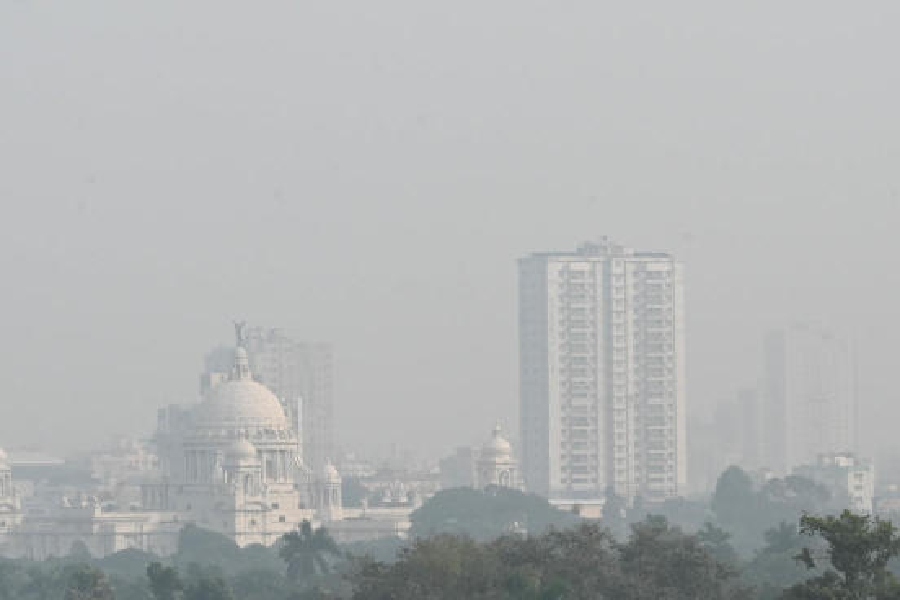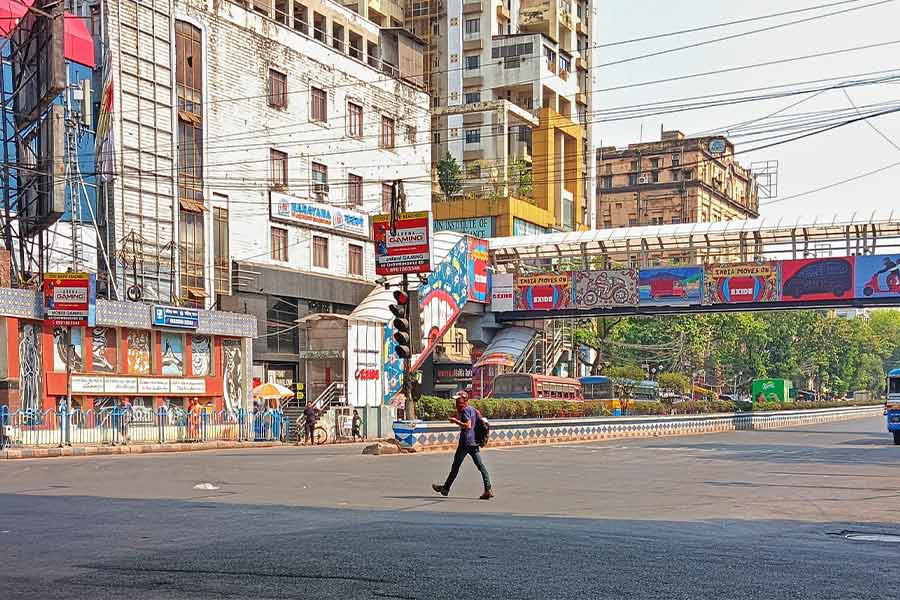Even an hour’s exposure to foul air can lead to respiratory infections, asthma attacks and other illnesses, a professor of environmental health sciences at the University of Massachusetts Amherst said on Tuesday.
Richard Peltier, the professor, said polluted air affects immunity and makes one vulnerable to infectious diseases, including influenza. Foul air, he said, acts as fuel to outbreaks of cough and respiratory infections, which are so common in Kolkata.
An hour’s exposure to toxic air may not lead to mortality, but will cause significant discomfort.
Peltier said that in the long-term, exposure to foul air can cause cardiovascular diseases, lung infections, stroke and even cancer.
The air quality status report, available on the website of the West Bengal Pollution Control Board, showed Kolkata’s air was “poor” on Sunday, Monday and Tuesday.
The air quality mentioned in the report was an average of the readings obtained from the seven monitoring stations across the city through the day. Scientists said usually mornings and late evenings have higher concentration of pollutants than during the daytime.
“The air quality improves marginally during the daytime if there is sunshine,” said an official in the sate pollution control board.
“Even an hour’s exposure to bad air can cause asthma attacks, respiratory infections, dry eyes and other illnesses. This may not cause mortality, but they are illnesses that impact people,” said Peltier.
“But long-term exposures can cause mortality and this is now proven by research,” he said.
“The foul air in a place makes the population vulnerable to infection from viruses. The immunity slows down because of the poor air and people fall sick more easily.”
Peltier, who was interacting with journalists at the American Center on Tuesday afternoon, said that focussing more on reduction of local sources of pollution will bring faster results.
“It is easier to stop a polluting vehicle within a city than moving a polluting power plant to another region. Reducing local sources of pollution can lead to significant improvements in air quality,” he said.
A scientist in the state pollution control board echoed Peltier. “Anyone exposed to high concentration of toxins in the air during morning or evening can develop problems such as scratchy throat, irritation in the nose or asthma attacks. It will also depend
on the physiological condition of the person,” the scientist said.
The state pollution control board’s air pollution report, available on its website, showed that the two most toxic particulates — PM2.5 and PM10 — breached the national permissible levels on Sunday, Monday and till 6pm on Tuesday.
Anyone exposed to such air could develop the illnesses that Peltier spoke about.
PM2.5 refers to particles that are less than 2.5 micron in size. They can enter the deepest crevices of lungs and the blood stream, and can affect any organ. They can trigger a host of critical ailments, including cancer.
The national permissible level — 24-hour average — of PM2.5 and PM10 are 60 and 100 microgram per cubic metre of air, respectively.
In Kolkata, the PM2.5 concentration was 111.15 microgram on Sunday and 93.57 microgram on Monday.
The PM10 concentration was 183.8 microgram on Sunday and 167.59 microgram on Monday.







